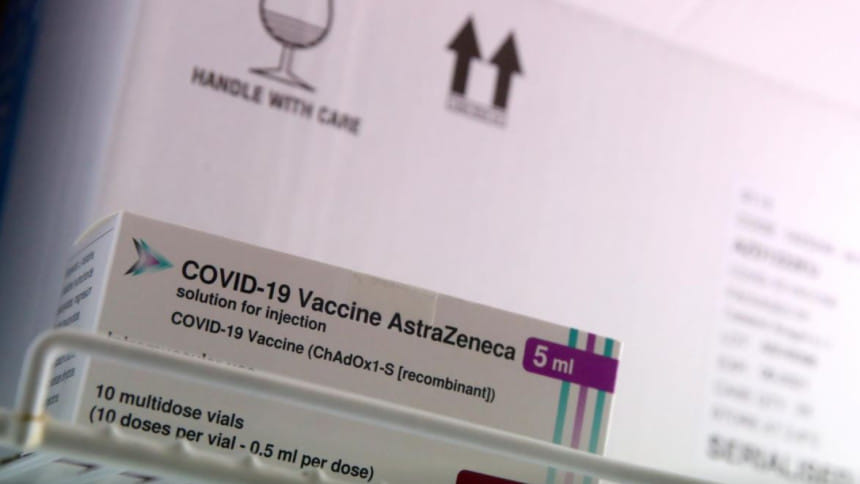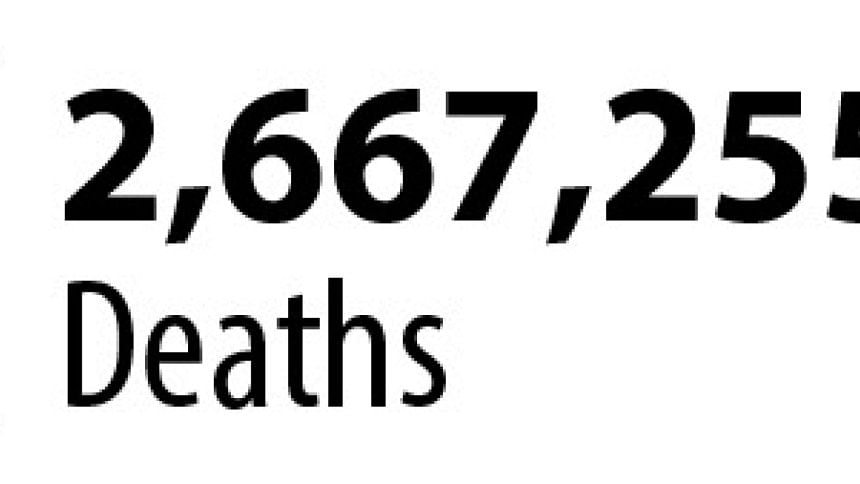Astrazeneca Shots: No evidence of causalities

The World Health Organization (WHO) said yesterday that its advisory panel was reviewing reports related to AstraZeneca's Covid-19 vaccine but there was no evidence that any health incidents were caused by the shot.
In a reply to Reuters, WHO spokesman Christian Lindmeier said: "As soon as WHO has gained a full understanding of these events, the findings and any unlikely changes to current recommendations will be immediately communicated to the public.
"As of today, there is no evidence that the incidents are caused by the vaccine and it is important that vaccination campaigns continue so that we can save lives and stem severe disease from the virus," he added.
The director of the Oxford Vaccine Group yesterday said there was no link between the jab it developed with AstraZeneca and blood clotting, after several countries suspended its use.
Andrew Pollard said there was "very reassuring evidence that there is no increase in a blood clot phenomenon here in the UK, where most of the doses in Europe been given so far".
"It's absolutely critical that we don't have a problem of not vaccinating people and have the balance of a huge risk, a known risk of Covid, against what appears so far from the data that we've got from the regulators -- no signal of a problem," he told BBC radio.
France, Germany, Italy yesterday became the latest countries to suspend their use of the Oxford/AstraZeneca vaccine out of precaution.
Ireland and the Netherlands on Sunday suspended the use of the Oxford/AstraZeneca vaccine. Indonesia, Denmark, Norway and Iceland have also paused their rollout of the jab.
Thailand will start using the AstraZeneca vaccine today after a brief delay over safety concerns, officials said yesterday, with Prime Minister Prayuth Chan-ocha and cabinet members due to be first in line to get shots.
Thailand was on Friday the first country outside of Europe to suspend use of the AstraZeneca shot, on which its mass vaccination campaign is heavily reliant.
British Prime Minister Boris Johnson said yesterday that AstraZeneca's vaccine was safe and that the government was very confident about using it in its vaccination push.
Asked if he could reassure people that the shot was safe, Johnson said: "Yes I can."
AstraZeneca Plc said on Sunday a review of safety data of people vaccinated with its Covid-19 vaccine has shown no evidence of an increased risk of blood clots.
"A careful review of all available safety data of more than 17 million people vaccinated in the European Union and UK with Covid-19 Vaccine AstraZeneca has shown no evidence of an increased risk of pulmonary embolism, deep vein thrombosis or thrombocytopenia, in any defined age group, gender, batch or in any particular country," the company said.
"It is most regrettable that countries have stopped vaccination on such 'precautionary' grounds: it risks doing real harm to the goal of vaccinating enough people to slow the spread of the virus, and to end the pandemic," Peter English, a retired British government consultant in communicable disease control, told Reuters.
The drugmaker said, 15 events of deep vein thrombosis and 22 events of pulmonary embolism have been reported so far, which is similar across other licensed Covid-19 vaccines.
The company said additional testing has and is being conducted by the company and the European health authorities and none of the re-tests have shown cause for concern.
The monthly safety report will be made public on the EMA website in the following week, AstraZeneca said.
The AstraZeneca vaccine, developed in collaboration with Oxford University, has been authorised for use in the European Union and many countries but not yet by US regulators.
The company is preparing to file for US emergency use authorisation and is expecting data from its US Phase III trial to be available in the coming weeks.


 For all latest news, follow The Daily Star's Google News channel.
For all latest news, follow The Daily Star's Google News channel. 



Comments